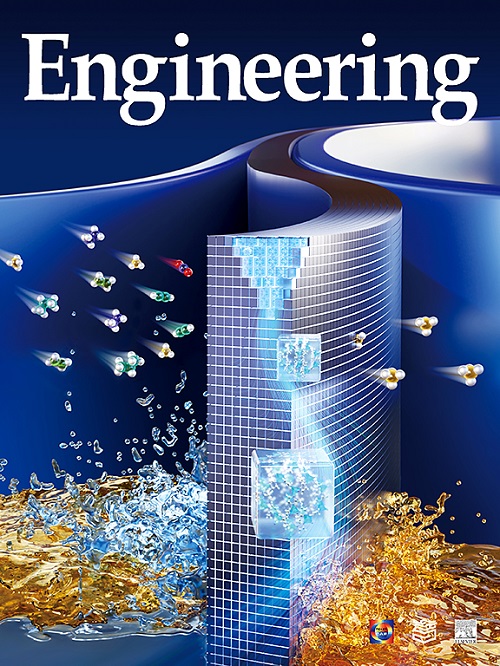Towards Sustainable Urban Water System: A Strategic Approach to Advance Decarbonizing Water Management
IF 11.6
1区 工程技术
Q1 ENGINEERING, MULTIDISCIPLINARY
引用次数: 0
Abstract
The decarbonization of urban water systems is critical for achieving global climate goals, and reducing the carbon intensity of urban water systems necessitates a paradigm shift from traditional end-of-pipe treatment approaches to alternative technological solutions and holistic planning. This study explores a comprehensive strategy for achieving sustainable urban water management that integrates a decentralized water system (DWS), source separation, and low-carbon water treatment technologies. DWS is fundamental to implementing a sustainable urban water system. This study addresses the social contexts, costs, approaches, and benefits associated with DWS implementation, emphasizing the importance of its construction. Subsequently, the analysis focuses on the on-site source separation of grey water, feces, and yellow water in the DWS, which serves as the primary approach for wastewater reuse and N/P recovery for a sustainable urban water system. Following source separation, low-carbon water treatment technologies based on resource conservation and recovery are thoroughly discussed. Specifically, resource conservation can be achieved through rainwater control, efficiency improvements, and low energy consumption, while resource recovery can be attained through carbon capturing and energy/nutrient recovery. Overall, in response to the challenges in current urban water management, this study proposes a comprehensive strategy that supports a sustainable urban water system, providing theoretical guidance for reducing carbon emissions.

迈向可持续的城市供水系统:推进脱碳水管理的战略途径
城市水系统的脱碳对于实现全球气候目标至关重要,降低城市水系统的碳强度需要从传统的管道末端处理方法转向替代技术解决方案和整体规划。本研究探讨了实现可持续城市水管理的综合战略,该战略将分散式水系统(DWS)、水源分离和低碳水处理技术相结合。DWS是实现可持续城市供水系统的基础。本研究探讨了与DWS实施相关的社会背景、成本、方法和效益,强调了其建设的重要性。随后,重点分析了DWS中灰水、粪便和黄水的现场源头分离,这是可持续城市水系统废水回用和N/P回收的主要方法。在源分离的基础上,深入探讨了基于资源节约和回收的低碳水处理技术。具体而言,通过控制雨水、提高效率和降低能耗实现资源节约,通过碳捕获和能量/养分回收实现资源回收。总体而言,针对当前城市水管理面临的挑战,本研究提出了支持可持续城市水系统的综合策略,为减少碳排放提供理论指导。
本文章由计算机程序翻译,如有差异,请以英文原文为准。
求助全文
约1分钟内获得全文
求助全文
来源期刊

Engineering
Environmental Science-Environmental Engineering
自引率
1.60%
发文量
335
审稿时长
35 days
期刊介绍:
Engineering, an international open-access journal initiated by the Chinese Academy of Engineering (CAE) in 2015, serves as a distinguished platform for disseminating cutting-edge advancements in engineering R&D, sharing major research outputs, and highlighting key achievements worldwide. The journal's objectives encompass reporting progress in engineering science, fostering discussions on hot topics, addressing areas of interest, challenges, and prospects in engineering development, while considering human and environmental well-being and ethics in engineering. It aims to inspire breakthroughs and innovations with profound economic and social significance, propelling them to advanced international standards and transforming them into a new productive force. Ultimately, this endeavor seeks to bring about positive changes globally, benefit humanity, and shape a new future.
 求助内容:
求助内容: 应助结果提醒方式:
应助结果提醒方式:


